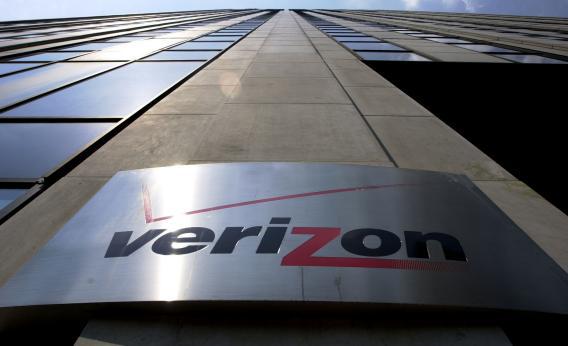Every week, Verizon connects billions of phone calls. And a leaked copy of a top-secret court order has revealed that a record of many of them is being passed daily to the National Security Agency.
On Wednesday the Guardian disclosed that the Foreign Intelligence Surveillance Court granted the classified order on April 25, forcing Verizon Business Services, a Verizon subsidiary, to hand over phone records for a three-month period ending July 19. The information, which was requested by the FBI and ordered to be passed to the NSA, does not include recordings of phone calls but rather metadata showing all calls being made and the duration of each call. The order, issued under a controversial section of the Patriot Act, specifies that the government should be passed an electronic copy of metadata “created by Verizon for communications (i) between the United States and abroad; or (ii) wholly within the United States, including local telephone calls.”
It is unclear whether a similar order has been served for records of nonbusiness Verizon customers, such as wireless and residential subscribers, and it is also unclear whether any other carriers were also served with an order to turn over the same data. But the scale of the order targeting Verizon’s business arm alone is massive, indiscriminate, and highly controversial. The American Civil Liberties Union is demanding that the surveillance be halted immediately, saying it “could hardly be more alarming.”
According to Verizon, it connects around 1 billion residential and business calls per day. The New York–headquartered company provides almost 100 million customers wireless services, and its business subsidiary is one of the largest corporate communications providers in the United States, with several million customers, including Fortune 500 corporations. This means that the NSA is receiving a huge trove of data from Verizon between April and July—likely encompassing tens of millions of detailed call records. Verizon has declined to comment on the surveillance order.
The order’s late-April issue date suggests that it was authorized amid heightened terror fears in the aftermath of the Boston Marathon bombing on April 15, though it may be related to a completely unconnected investigation. Following previous terrorist attacks, U.S. authorities have turned to increased surveillance with little sign of restraint. Almost immediately after Sept. 11, the NSA initiated a warrantless wiretapping program revealed by the New York Times in 2005 to have “monitored the international telephone calls and international e-mail messages of hundreds, perhaps thousands, of people inside the United States without warrants.”
While the Bush administration’s program recorded call content, nationwide snooping on millions of Americans’ call records is in many ways an equally egregious example of mass surveillance. The call records can be placed in massive databases and data mined to show links and relationships between thousands of people. This type of practice was denounced by a U.N. special envoy on free expression in a first-of-its-kind report released Tuesday on the rise of government spying. “The state now has a greater capability to conduct simultaneous, invasive, targeted and broad-scale surveillance than ever before,” the envoy said.
The NSA is supposed to focus on gathering foreign intelligence overseas. However, the agency’s chief has previously acknowledged that the NSA can conduct monitoring of Americans if the operation is led by FBI and authorized by a court, which appears to be what happened in the Verizon case. The Foreign Intelligence Surveillance Court approved all 1,856 surveillance requests it received from U.S. authorities in 2012, according to its latest official report. However, what the surveillance actually entails—the who, what, where, when, and, why—and how many other orders of this kind that have been approved remains classified. At least one recent Foreign Intelligence Surveillance Court opinion has detailed unlawful monitoring of Americans’ communications, but the Justice Department is fighting to keep it secret.
For the Obama administration, the Verizon revelation may have serious political ramifications. The White House was quick to defend the snooping effort Thursday, saying such tactics are needed to protect against unspecified “terrorist threats,” and the Justice Department will likely try to track down and punish the person who disclosed the court document, in line with a trend of aggressive anti-leaking investigations. But in 2006, before he was elected president, Obama railed against the Bush administration when details about its domestic surveillance program emerged. “Americans fought a revolution in part over the right to be free from unreasonable searches—to ensure that our government couldn’t come knocking in the middle of the night for no reason,” he said. “We need to find a way forward to make sure that we can stop terrorists while protecting the privacy, and liberty, of innocent Americans.”
Obama may be haunted by those words in the days ahead as he assesses the sweeping surveillance of millions of Verizon customers—and grapples with its authorization on his watch.
